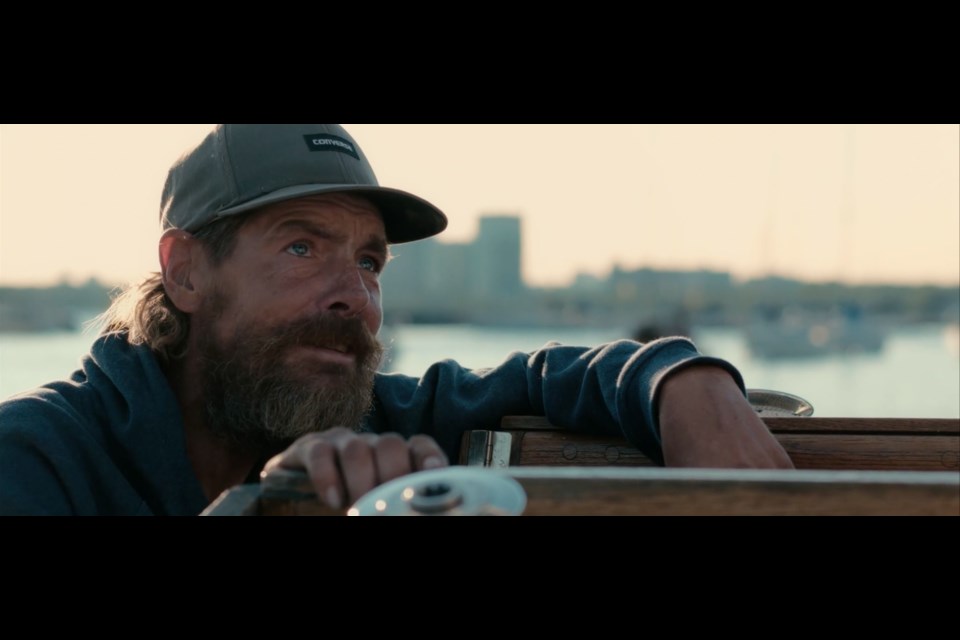After driving by the same homeless man every day on his way to work in 2018, a Guelph filmmaker got out his car, met the man and is now telling his story for the world to see.
Michael Del Monte, winner of the Rogers Audience Award for Best Canadian Documentary at Hot Docs 2018 for his film Transformers, is showcasing a raw and intimate look at homelessness through his latest documentary, His Name Is Ray which is streaming online until May 23 at HotDocs Ted Rogers Cinema.
The film tells the story about Ray, a homeless man in Toronto who used to be a sailor but is now on the streets. Ray is addicted to heroin but dreams about getting back to his old life on the water.
“The best thing it did was help me see humanity and dignity. Despite being overtaken by addiction, Ray still has dreams,” said Del Monte about the journey making the film.
“A lot of the people in the film that I filmed with only a couple years ago are now dead. And despite all that, your dream or hope you have can't be killed. That's what the most beautiful thing was, and tragic at the same time.”
He said even though one can realize it's going to be almost impossible to achieve a certain dream, dreams keep us human.
“Now every time I see someone, despite what I'm seeing on the surface, they're cold or tattered, they're leaning over, they're suffering. I know, deep inside, there's still something there that is still human,” said Del Monte.
He said festivals these days often try to find answers to big problems such as racism, climate change or homelessness. But this film doesn't present an easy answer.
“I truthfully believe there isn't one, like if there was, we would have figured it out,” said Del Monte.
“I think when you watch it, you're left with a bit of a strange feeling. It doesn't have a political position saying, 'here's what we need to do to prevent this.' It's more of an invitation, just like Ray invited me to go out on the streets.”
Del Monte's film Transformer was about world class power lifter Janae Kroczaleski and her struggles transitioning from male to female after being publicly outed as transgender.
Del Monte said he is generally drawn to characters who tend to find themselves forgotten and are struggling with something deep inside them.
“I do pick stories that have characters that I just love spending time with. It's not characters who I generally associate with maybe in my day to day life, but then when I meet somebody who's from a different worldview than me, we just form a connection, and become friends,” said Del Monte.
“I think you see so many similarities in people who aren't necessarily exactly like you. You see their struggles or your struggles in similar ways sometimes.”
Del Monte said as cliché as it sounds, it’s not he who finds the main characters for his films, rather, his characters find him. The story of Ray is no different.
“On my way home, I would pass the same homeless man at the intersection of Lakeshore and Jameson. The intersection was an artery for commuters making their way to and from the city. One day, as the sun was setting over Lake Ontario, I saw the man crouched down, counting his coins on a sewer grate,” said Del Monte.
He said while he was usually irritated when Ray would approach his vehicle, this time he saw him in a different light. Once he began talking to Ray, he learned that Ray was once a sailor who lost his boat and was now homeless.
“It was clear to me that his choice to panhandle in a direction facing the lake and only a few hundred meters from the sailing club was no coincidence. His dream was literally within sight but his addiction kept him from reaching it,” said Del Monte.
Ray then invited Del Monte to follow him. Del Monte followed him to his panhandling location, to the place he would purchase drinks from and even where he would live which would get trashed by his drug dealer everyday.
“I'm like, 'is this what life's like?' And he goes, 'Yeah, every day. Everyday is like this,'” said Del Monte.
"You're trying to find a new home, you're trying to make some money for whatever your addiction is and you're running from some dealers, you're making friends, but then those friends are maybe stealing from you, not because they're bad people, but just because they have addictions too and they need their stuff. So, it just became this real immersive experience of seeing what it's like to really live on the streets.”
